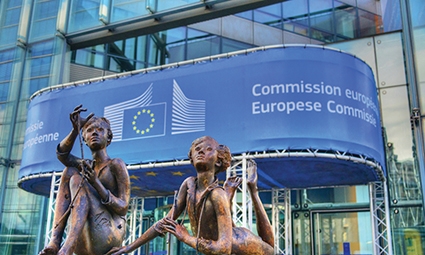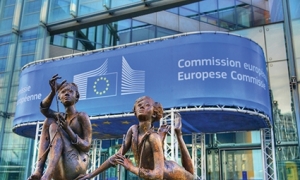European Commission: Georgia Fulfills Visa-Lib Benchmarks, Improvement Still Needed
The European Commission has issued a report on visa-liberalization, saying Georgia continues to fulfill the benchmarks, but action is required in a number of specific areas to preserve their sustainable implementation.
The report was released on December 20 and refers to fulfillment of the visa-liberalization benchmarks by the western Balkan countries (Albania, Bosnia and Herzegovina, the former Yugoslav Republic of Macedonia, Montenegro and Serbia) as well as the Eastern Partnership countries (Georgia, Moldova and Ukraine).
The report is the first assessment under the new monitoring mechanism for the eight countries that have concluded visa-liberalization dialogues with the EU.
The assessment shows that all eight countries have demonstrated strong commitment to meeting the necessary requirements and have undertaken important efforts to implement a number of far-reaching reforms set out under the visa-liberalization process.
The report, which focuses on the areas of irregular migration and readmission, fight against corruption and money laundering, as well as public order and security, says that Georgia is fulfilling its benchmarks but further improvement of the implementation is expected.
In particular, the Commission gave Georgia several recommendations, asking it to continue campaigns on the rules of visa-free travel, finalize the migration analytical and risk analysis systems, operationalize the Cooperation Agreement concluded with Europol and conclude a cooperation agreement with Eurojust, to finalize the reform on intelligence-led policing, and to further strengthen cross-border law enforcement and judicial cooperation.
The Commission also called on Georgia to adopt amendments to the anti-discrimination law to ensure its implementation is effective.
The report reads that between the second half of 2016 and mid-2017 the trends for illegal stays and refusal of entry remained stable.
The assessment also states that the figures for asylum applications by Georgian nationals in the EU in the given period do not indicate a further increase, adding that refusals of entry decreased by 39% and illegal stays by 3%, while asylum applications increased by 7.2%.
“The number of Georgian citizens ordered to leave decreased by 12% from 6,415 in 2015 to 5,635 in 2016, while the return rate increased from 45.13% in 2015 to 55.90% in 2016,” the report reads.
The Commission also underlined that organized criminal groups (OCGs) from Georgia are still reported as one of the most frequently represented non-EU nationalities involved in serious and organized crime in the EU.
“Georgian OCGs are highly mobile, are mainly involved in organized property crime (particularly organized burglaries and thefts) and are especially active in France, Greece, Germany, Italy and Spain,” the report reads.
The document also stresses that Georgia remains a transit country for various illicit commodities trafficked to the EU, in particular drugs, adding it has been also used to launder illicit proceeds generated by various OCGs in the EU and outside the EU, and has been emerging as a transit country for laundered criminal proceeds.
However, the Commission underlined that Georgia ensured continuous fulfillment and demonstrated serious commitment in preventing and fighting organized crime, adding it has stepped up cooperation at the international level.
“While, overall, Georgia has a good track record in implementing anti-corruption reforms, particular attention should be paid to the effective implementation of the verification mechanism of asset declarations introduced in January 2017,” the report reads.
Thea Morrison












